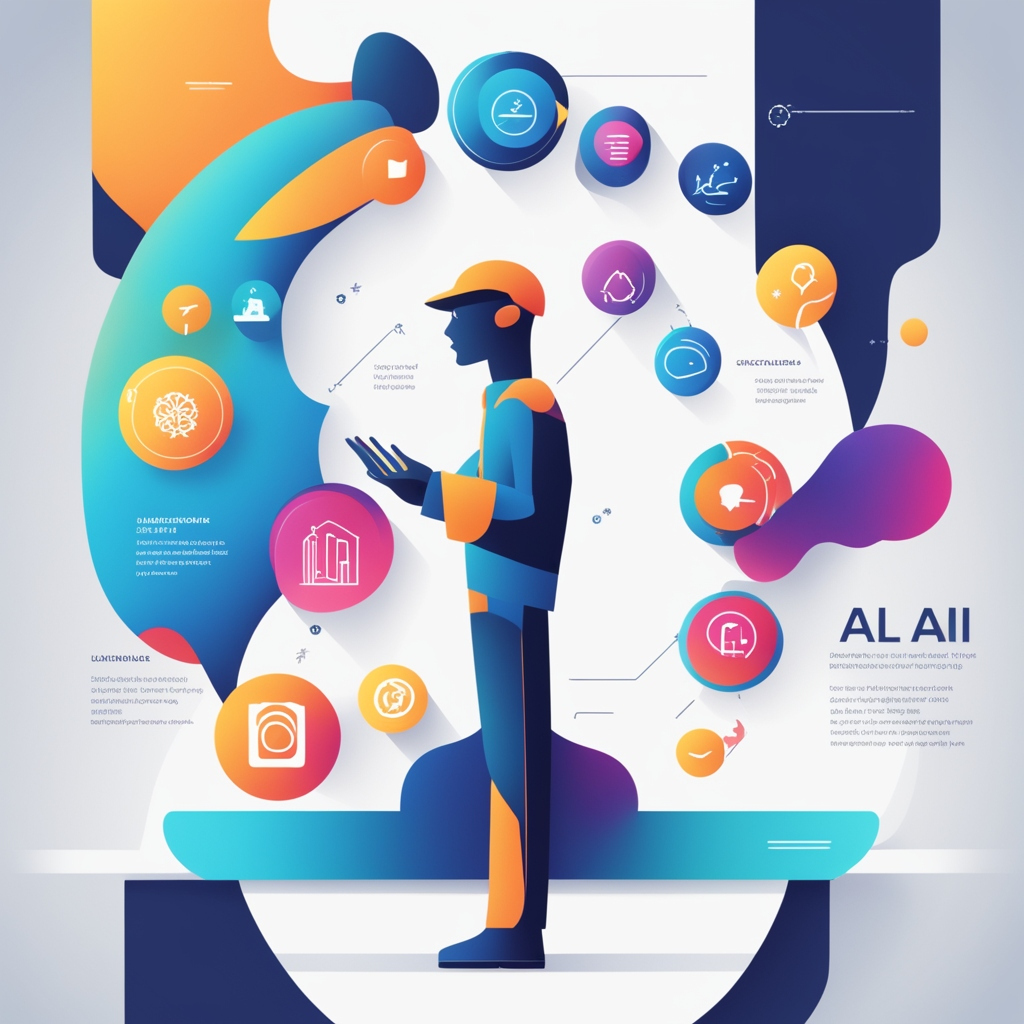In today’s rapidly evolving technological landscape, Artificial Intelligence in Mobile app stands as a cornerstone, reshaping industries and revolutionizing user experiences. One arena where its impact is profoundly felt is mobile app development. From personalized user interactions to predictive maintenance, the role of AI in mobile app development is paramount. In this extensive guide, we delve into the intricacies of AI integration in mobile apps, exploring its myriad benefits, addressing challenges, and charting the future directions of this transformative technology.
Introduction to Artificial Intelligence in Mobile App Development
Artificial Intelligence, a field encompassing the development of computer systems capable of emulating human-like intelligence, has seamlessly integrated into mobile app development. Through AI, developers harness the power of algorithms to imbue apps with capabilities such as learning, problem-solving, and decision-making. This fusion of intelligence with mobility has redefined user experiences, paving the way for a new era of personalized, intuitive applications.
Benefits of Artificial Intelligence in Mobile App Development
- Personalization: At the heart of AI-driven mobile apps lies the ability to tailor experiences based on user behavior, preferences, and interests. Through sophisticated algorithms, apps can adapt in real-time, offering customized content and recommendations, thereby fostering user engagement and loyalty.
- Predictive Maintenance: AI algorithms enable proactive detection and resolution of issues, leading to enhanced app performance and reduced downtime. By analyzing data patterns, AI anticipates potential glitches, facilitating seamless operations and ensuring a smooth user experience.
- Enhanced User Experience: AI-powered chatbots and virtual assistants serve as round-the-clock companions, guiding users through app functionalities, addressing queries, and troubleshooting issues. This constant support fosters user confidence and amplifies satisfaction levels, thereby augmenting retention rates.
- Automated Testing: The integration of AI streamlines the testing phase, automating repetitive tasks and accelerating the app development lifecycle. Through AI-driven testing frameworks, developers can identify bugs, optimize performance, and ensure compatibility across diverse devices and platforms.
- Data Analysis: In the era of big data, AI emerges as a potent ally, capable of deciphering vast datasets and extracting actionable insights. By leveraging AI-powered analytics, developers gain invaluable feedback, enabling data-driven decision-making and iterative improvements.
- Security: AI-driven security systems fortify mobile apps against evolving threats, employing predictive algorithms to detect anomalies and thwart malicious activities in real-time. By bolstering defenses and proactively mitigating risks, AI enhances user trust and safeguards sensitive data.
- Development Efficiency: Through the automation of repetitive tasks, AI accelerates development cycles, optimizing resource utilization and minimizing time-to-market. By delegating mundane tasks to AI, developers can focus on innovation and creativity, driving continuous improvement and competitive advantage.
Challenges of Artificial Intelligence in Mobile App Development
- Data Quality: The efficacy of AI hinges on the quality and diversity of training data. Ensuring access to clean, representative datasets poses a significant challenge, requiring meticulous data collection, labeling, and curation efforts.
- Integration: Retrofitting AI into existing app architectures necessitates substantial modifications, often disrupting established workflows and infrastructures. Seamless integration demands careful planning, expertise, and robust compatibility testing to minimize downtime and ensure interoperability.
- Ethics: The ethical implications of AI, including concerns regarding privacy, bias, and accountability, loom large in mobile app development. Addressing these ethical quandaries requires a holistic approach, encompassing transparency, fairness, and regulatory compliance.
- Explainability: As AI assumes increasingly complex roles, the need for transparent decision-making becomes imperative. Ensuring the explainability of AI algorithms fosters user trust and confidence, mitigating apprehensions and facilitating informed consent.
- Talent and Resources: Developing AI-powered apps necessitates access to specialized talent and resources, spanning data scientists, machine learning engineers, and AI researchers. Fostering a culture of innovation and investing in skill development are essential for nurturing AI capabilities.
- Cost: The development and implementation of AI entail substantial financial investments, encompassing infrastructure, talent acquisition, and ongoing maintenance. Balancing cost considerations with long-term strategic objectives is essential for maximizing ROI and mitigating financial risks.
Future Directions of Artificial Intelligence in Mobile App Development
- Edge AI: The proliferation of edge computing empowers AI processing at the device level, enabling low-latency, real-time decision-making. By offloading computation to edge devices, apps gain agility and responsiveness, unlocking new possibilities in IoT and edge computing scenarios.
- Augmented Reality: AI-driven Augmented Reality (AR) experiences redefine user interactions, blending virtual elements seamlessly with the physical world. Through advanced computer vision and spatial mapping, AR apps deliver immersive, context-aware experiences, revolutionizing gaming, retail, and education sectors.
- Natural Language Processing: AI-driven Natural Language Processing (NLP) algorithms enhance conversational interfaces, enabling more fluid, human-like interactions. By understanding context, sentiment, and intent, NLP-powered chatbots and virtual assistants deliver personalized, context-aware responses, enriching user experiences.
- Predictive Analytics: AI-powered predictive analytics empower developers to anticipate user behavior and preferences, enabling targeted interventions and personalized recommendations. By harnessing historical data and real-time insights, predictive analytics drive user engagement, retention, and monetization strategies.
- Autonomous Apps: AI-driven autonomous apps embody the next frontier in mobile app development, exhibiting self-learning, decision-making, and adaptation capabilities. By leveraging reinforcement learning and cognitive computing, autonomous apps navigate dynamic environments, delivering personalized, anticipatory experiences.
Conclusion
The fusion of Artificial Intelligence with mobile app development heralds a new era of innovation, personalization, and intelligence. Despite inherent challenges, the transformative potential of AI is undeniable, reshaping industries and redefining user experiences. As we navigate the evolving landscape of AI-driven mobile apps, embracing ethical principles, fostering talent, and embracing emerging technologies are essential for unlocking the full potential of AI and delivering transformative user experiences. As AI continues to evolve, we stand poised on the cusp of a new era, where intelligent, intuitive mobile apps seamlessly integrate into our daily lives, enriching, and empowering users across the globe.
Related Article of Owasoft
Enhancing Mobile App Security: Best Practices and Strategies




